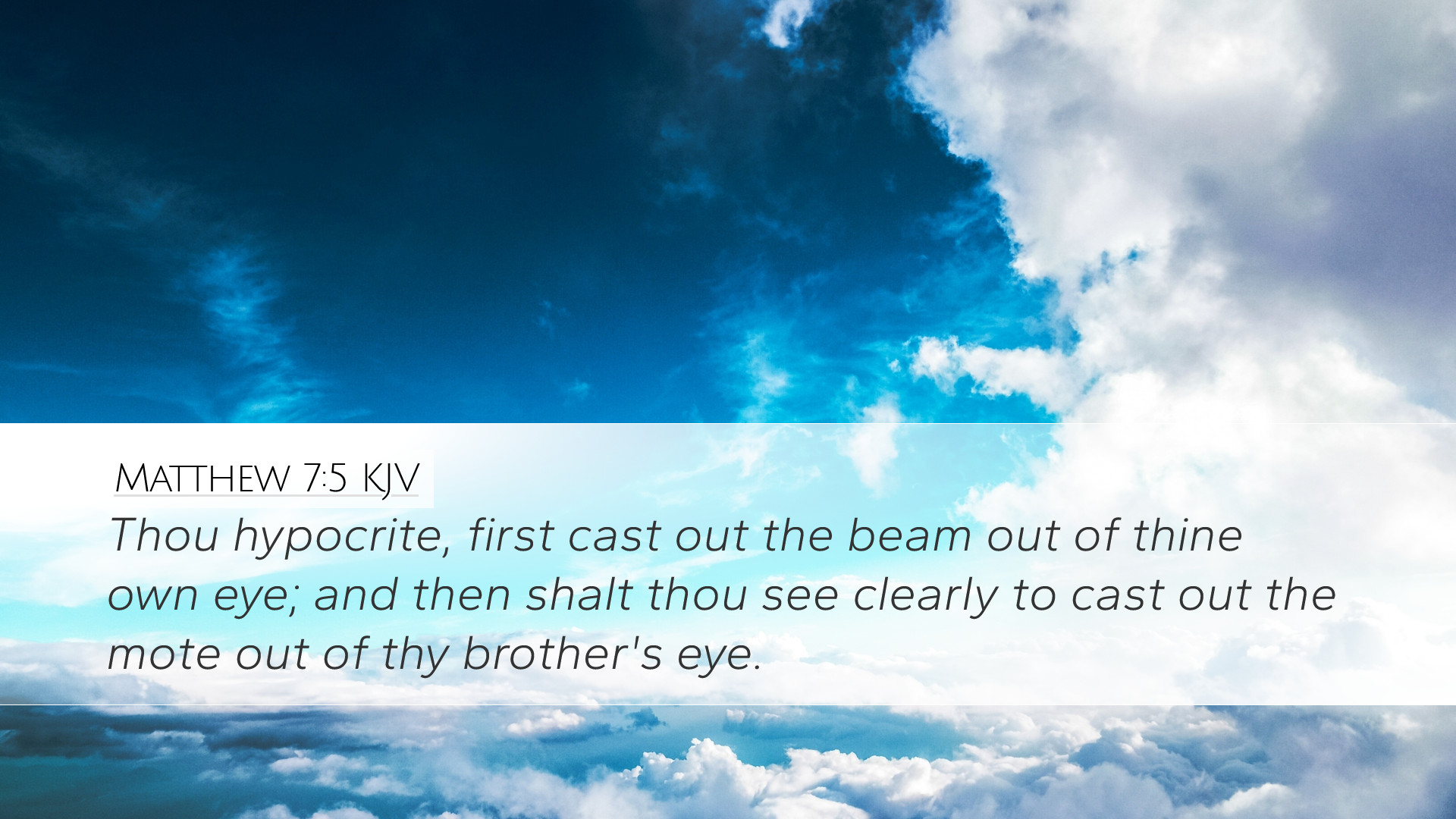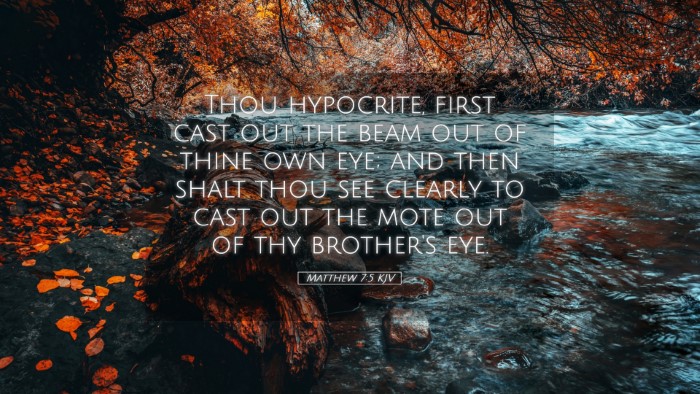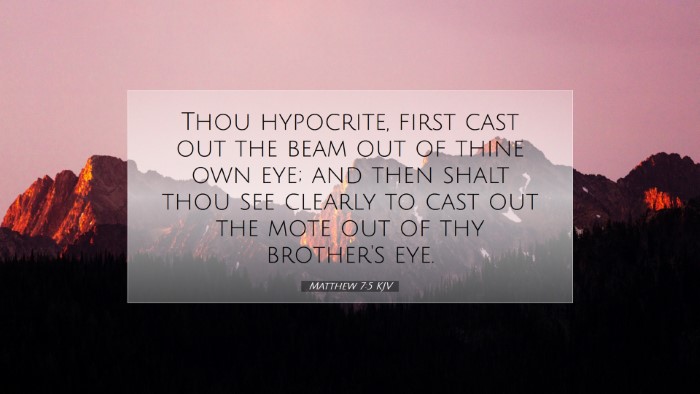Commentary on Matthew 7:5
Verse (Matthew 7:5): "Thou hypocrite, first cast out the beam out of thine own eye; and then shalt thou see clearly to cast out the mote out of thy brother's eye."
Introduction
Matthew 7:5 serves as a sobering reminder of the importance of self-examination and humility in the context of interpersonal relationships and judgment. This verse occurs within the Sermon on the Mount, where Jesus addresses the attitudes of the heart that dictate one's actions towards others. It highlights the hypocrisy of looking to correct others while being blind to one’s own serious flaws.
Insights from Matthew Henry
Matthew Henry emphasizes the gravity of hypocrisy in religious life. He asserts that the “hypocrite” is one who is quick to point out the minor faults of others while ignoring their own significant shortcomings. He notes that the “beam” represents a considerable fault or sin, while the “mote” symbolizes a small and often negligible issue.
- Self-Reflection: Henry implores readers to reflect on their own lives before criticizing others. It calls for a rigorous self-examination to acknowledge and address our faults.
- Restoration of Sight: Only after addressing one's issues can a person truly help others. Henry believes that this is not only about correction but also about leading by example.
- Judgment and Mercy: He reminds us that while discernment in judgment is necessary, it must be balanced with mercy and understanding towards others.
Insights from Albert Barnes
Albert Barnes provides theological depth to this verse by exploring the nature of sin and judgment. He sees the metaphor of the eye as crucial in differentiating between the degree of sinfulness present in one's life and the lives of others.
- Degrees of Sin: Barnes notes that the teaching is not to encourage blindness to others’ faults but to recognize the greater severity of one’s own sins.
- Prescription for Help: He also points out that once one's own sins are dealt with, the person is better equipped to offer constructive criticism and guidance to others.
- Christian Accountability: Barnes advocates for a community that holds each other accountable in love and truth, asserting this verse does not nullify the responsibility of helping others correct their faults.
Insights from Adam Clarke
Adam Clarke offers a detailed examination of the language and cultural context of this passage. He pays particular attention to Jesus's use of hyperbole in describing the “beam” and the “mote,” illustrating the absurdity of one being critical of another’s minor fault while possessing a significant fault themselves.
- The Zeal for Righteousness: Clarke suggests a zeal for personal righteousness is essential before we engage in the moral and spiritual guidance of others.
- Visual Metaphor: He elaborates on the visual imagery, explaining how clear vision is necessary for both personal integrity and communal relationships.
- Church Discipline: Clarke’s insights extend to the process of church discipline; he argues that church members should first seek personal holiness before expounding judgment on others.
Theological Implications
The message contained within Matthew 7:5 encapsulates profound theological implications regarding the nature of sin, human relationships, and divine mercy. Each commentary contributor echoes the necessity of self-awareness, humility, and the transformative journey of repentance.
- Humility in Judgment: Recognizing one's vulnerabilities and sins cultivates a humility that is essential for community living.
- Restorative Approach: This passage encourages believers to focus on restoration rather than judgment, leading to healthier and more loving communities.
- Call to Action: Christians are called to accountability, not just in their own lives but also taking the bold step of helping their neighbors—once they have sorted their own issues.
Practical Applications
When this verse is applied to everyday life, several practical applications emerge:
- Daily Self-Examination: Encourage a habitual practice of self-reflection and confession of sins, creating a culture of honesty and growth.
- Empathetic Corrections: Approach conversations about faults with grace and empathy, recognizing our own struggles.
- Supportive Communities: Focus on creating communities where vulnerability is met with support and restoration rather than condemnation.
Conclusion
In conclusion, Matthew 7:5 is a powerful admonition against hypocrisy and encourages believers to address their own faults first. This verse serves as a foundation for healthy relationships within the church and in personal life, reinforcing the core principle of love and compassion in the exercise of faith. Grounded in self-awareness and grace-filled relationships, believers are invited into a deeper understanding of humility in judgment, ultimately reflecting the nature of Christ in their interactions with others.


